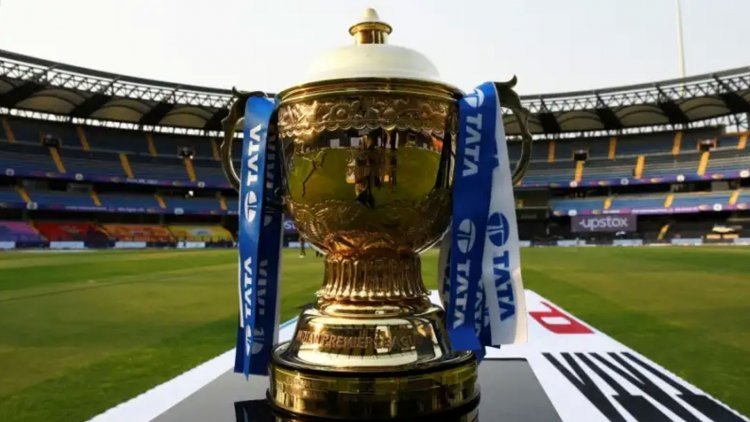The IPL auction and its perplexing dynamics
In the shortest format of the game, team balance is a hotly debated topic. Franchises spend unprecedented amounts to guarantee that they have the right players in the appropriate spots.

The Indian Premier League mini auction in Kochi on December 23 brought in a lot of money. Traditional mindsets were displayed by team management, with some of the top all-rounders in white-ball cricket signing record agreements based on their recent performances. That ICC rankings and global reputations can be shredded in auctions was once demonstrated when two of the world's top batsmen - Joe Root and Kane Williamson - were barely accommodated at their base prices, and Ajinkya Rahane, once India's Mr Dependable, won a consolation contract with Chennai Super Kings.
The auction dynamics of the IPL can be perplexing. It's tough to predict strategy, and in a frenetic and sometimes absurd bidding war, clubs may not obtain the players they want. At the end of the day, money is important in an open auction, and because top players do not have the power to select a team, they frequently end up with the incorrect organisation. Sam Curran is a prime example, having laughed all the way to the bank after Punjab Kings outbid five other teams to sign the talented England all-rounder for a record-breaking Rs 18.5 crore.
Despite playing in the final of the recently finished T20 World Cup in Australia, Curran, who was also named man of the tournament, is not ranked among the top 20 T20 all-rounders or batsmen in the world. According to the most recent ICC rankings, the 24-year-old England player is ranked fifth in the world in T20 bowling, trailing only Afghanistan's Rashid Khan, a Gujarat Titan.
In the shortest format of the game, team balance is a hotly debated topic. Franchises spend record amounts to ensure that the right players are in the proper spots. While coaches experiment with their lineups in crunch situations, teams strive for consistency and contribution from every member of the team in a game with very little margin for error. A team of 11 impact players effectively runs the distance. Curran certainly provides muscle to Shikhar Dhawan's Punjab Kings, but whether he can make a difference on his own is debatable.
In T20 cricket, form is just ephemeral. It can also be deceptive. The history of the IPL is littered with examples of teams not receiving a complete return on investment. It can also be wasteful spending. This extensive list includes names like Yuvraj Singh, Kevin Pietersen, Glenn Maxwell, and even David Warner. If the last IPL is any guide, Chris Morris, who was purchased by the Rajasthan Royals for a record-breaking price of Rs 16 crore, was a huge disappointment. The Royals broke the bank to acquire the South African all-rounder, but Morris had little impact on Sanju Samson's club.
Mumbai Indians' Ishan Kishan (Rs 15.25 crore), Chennai Super Kings' Ravindra Jadeja (Rs 16 crore), and Kolkata Knight Riders' Shreyas Iyer (Rs 12.25 crore) all failed, and this list also contained two game icons, Rohit Sharma (Rs 16 crore) and Virat Kohli (Rs 12.25 crore) (Rs 15 crore).
Cricket, on the other hand, thrives on faith and a healthy dose of expectation. Big teams like the Mumbai Indians, Chennai Super Kings, and Kolkata Knight Riders have a history of 'building' teams rather than chopping and changing. The Delhi Capitals, led by head coach Ricky Ponting, have begun to exhibit a similar approach. These teams will not buy players at random and end up losing. They may make strategic investments, but they will not be entirely reliant on them.
As a result of the mini-auction, CSK paid Rs 16.25 crore for Ben Stokes, setting even another record. It is unlikely that MS Dhoni's squad would completely rely on Stokes, who also has the option of captaining the men in yellow. A competent team should have sufficient backup. Under new coach Mark Boucher, Mumbai made a similar move by signing Cameron Green for Rs 17.5 crore. The in-form Australian all-rounder will fill the void left by Kieron Pollard, adding depth to a bowling attack that already includes a fit-again Jofra Archer and Jasprit Bumrah.
If there is a prize for the most fortunate man in the mini auction, it may have gone to West Indian Nicholas Pooran. Pooran was released by Sunrisers Hyderabad after scoring only 306 runs in 14 games last season. He received a Rs 16-crore deal from Lucknow Super Giants, which was eight times his basic price, after CSK, Rajasthan, and Delhi showed interest. Pooran, who was a colossal failure in the T20 World Cup, has become the most expensive wicketkeeper in the IPL.
So, what compelled Lucknow to seek out this left-handed Caribbean batsman? Pooran's latest performance in the Abu Dhabi T10 was just astounding. Pooran, who played for Deccan Gladiators, once hammered 19 fours and 21 sixes in half a dozen games, leading the scoring charts with a strike rate of over 200! KL Rahul will almost certainly expect a similar role in the IPL 2023.
If Pooran was the most fortunate 'overseas' acquisition, young fast bowler Shivam Mavi, who was not retained by Kolkata Knight Riders, was snatched up by Gujarat Titans for a hefty Rs 6 crore, or 1,500 percent of his base price of Rs 40 lakh. Given that Bengal's uncapped Mukesh Kumar, who was registered for a base price of Rs 20 lakh, earned a contract with Delhi Daredevils for Rs 5.5 crore, a 2,750 percent increase, the IPL's ridiculousness during auction periods was shown once more. Consider this: Delhi's squad includes seasoned paceman Ishant Sharma. He would only be paid Rs 50 lakh for his extensive experience. Bizarre!




 admin
admin 




















